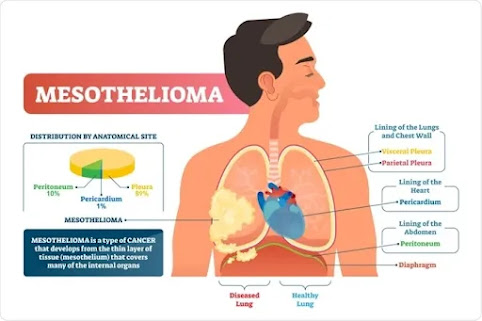Hello, health-conscious readers! Today, we embark on a crucial journey of understanding Abdominal Mesothelioma. Despite its relative rarity, comprehending this form of cancer is paramount. In this article, we'll dissect the intricacies of abdominal mesothelioma, covering its origins, symptoms, and treatment approaches. Let's dive into this informative exploration!
Understanding Abdominal Mesothelioma Cancer: A Comprehensive Guide
 |
| Abdominal Mesothelioma Cancer |
Deciphering Abdominal Mesothelioma:
Abdominal mesothelioma, medically termed peritoneal mesothelioma, stands as an infrequent subtype of cancer, targeting the peritoneum - the protective lining of the abdomen. Unlike its more common counterparts associated primarily with asbestos exposure, abdominal mesothelioma occasionally emerges in individuals without any recorded history of direct contact with asbestos.
Factors Contributing to Susceptibility:
While asbestos exposure remains the leading cause of mesothelioma, it's crucial to acknowledge that not all instances of abdominal mesothelioma are tied to direct asbestos interaction. Some cases are believed to be correlated with indirect exposure, where individuals come into contact with asbestos through a family member or via residence in an asbestos-contaminated environment.
Recognizing Key Indicators:
Early detection of abdominal mesothelioma significantly improves prognosis. Keep a vigilant eye for persistent abdominal discomfort or swelling, unexplained weight loss, alterations in bowel habits, and enduring fatigue. Remember, early intervention can substantially impact the treatment trajectory.
Diagnostic Procedures and Staging:
Diagnosing abdominal mesothelioma typically involves a combination of imaging studies, biopsies, and a thorough review of medical history. Staging the cancer is pivotal in determining its extent of spread, thereby guiding treatment decisions. The spectrum of treatment options encompasses surgical interventions, chemotherapy, radiation therapy, and cutting-edge immunotherapeutic methodologies.
Diverse Treatment Approaches:
- Surgical Interventions: Tailored to the cancer's stage and location, surgical options may encompass cytoreductive surgery, targeting the removal of visible tumors, and heated intraperitoneal chemotherapy (HIPEC), delivering chemotherapy directly to the abdominal cavity.
- Chemotherapy: Conventional chemotherapy stands as a prevalent approach to managing abdominal mesothelioma, employing potent drugs to target and eliminate cancer cells.
- Radiation Therapy: Although less frequently utilized for peritoneal mesothelioma, radiation therapy can be directed towards specific areas or employed for symptomatic relief.
- Immunotherapy: Representing a cutting-edge approach, immunotherapy mobilizes the body's immune system to target cancer cells. While still in its nascent stages for abdominal mesothelioma, it exhibits promising outcomes.
Seeking Support and Resources:
A mesothelioma diagnosis can be a profound experience, not only for the affected individual but also for their support network. Seeking assistance from mesothelioma organizations, engaging with online communities, and consulting healthcare professionals can furnish invaluable guidance and solace during this testing period.
In the realm of cancer, knowledge wields significant power. Familiarizing yourself with abdominal mesothelioma, including its origins, symptoms, and treatment modalities, constitutes a pivotal stride towards early detection and effective management. Remember, if you or someone you know is grappling with this diagnosis, you are not alone. Seek support, pose questions, and continue progressing on the path to enhanced well-being.

 Kriz
Kriz

No comments